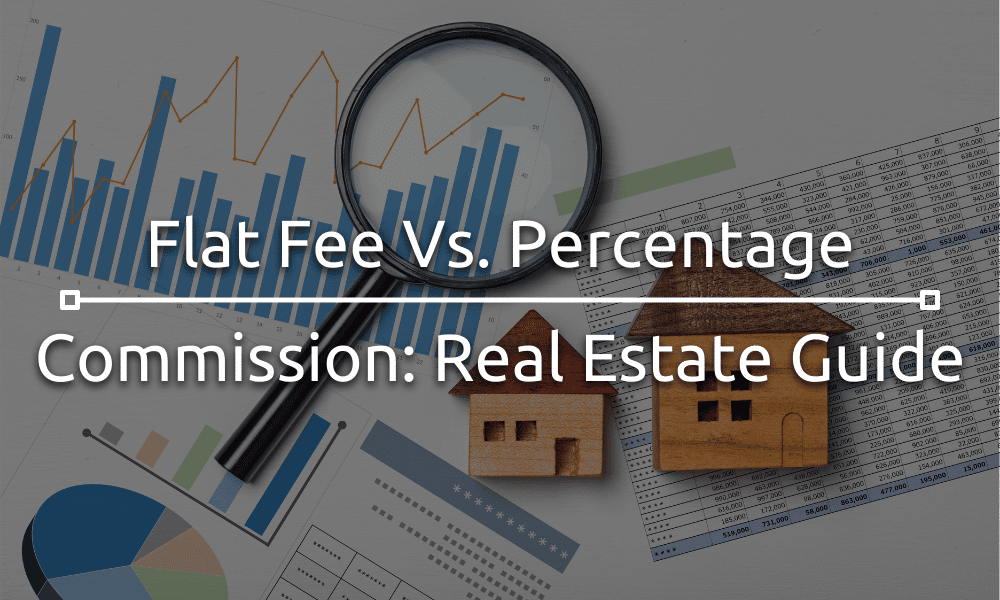Disruption is here in real estate, but just who’s getting disrupted? Who’s getting the pinch? Who’s feeling the pressure?
It is very convenient and easy to simply drop the buzzword that is “disruption” to describe an industry rife with change. But to truly understand what’s going on you need to understand who is disrupting whom, and how, and why.
The whom of this exercise is pretty easily identifiable: brokerages, the commissions paying public, big tech, and the agent.
Old-school brokerages
For starters let’s look at who’s disrupting the brokerage and in that sense I mean the classic brokerages. The offices with lots of admin staff, managers, assistant managers, and nice offices in nice locations. These are traditional stalwarts that have been around for decades. These offices are facing a war on all fronts.

Competition from new-age brokerages
Virtual offices and other new-age real estate franchises. continue to pull their agents away with better splits and caps for the agent because they don’t have the massive overhead. The public used to rely on these companies to find properties but now big tech companies have all the data online without even speaking to an agent.
The agent is facing a harder time getting leads and every penny that agent can save by moving to a better split office is more money they can spend on lead generation. Everyday these companies are being forced to compete to retain their agents and it’s forcing them to wage a battle that their massive overhead will not allow them to win.
Real estate agents
The agent is under a lot of pressure from all fronts as well. More and more freshly licensed agents are popping up everyday to compete with them for business. Big tech companies now have their current and past clients undivided attention when it comes to shopping for properties.
Shoppers look to big tech
These big tech companies rake in their profits by steering these clients to the agents that pay big fees for the leads. In short, big tech is in business to break up real estate relationships and they are pretty good at it. The more pressure big tech exerts the harder the agent has to work to retain those relationships and the more money they must spend to remain relevant in the process.
Information at your fingertips
The public is enjoying a newfound freedom with all the information available online. They are turning more and more to big tech and the internet and less and less to the agent to provide them with the information they need to make choices.
Those agents are not getting involved in the decision making process for a home until much further down the sales cycle. Big tech companies are now attracting the attention of the buying public and then nurturing that lead in order to sell it for a huge price to hungry agents that cannot feed themselves.

Big tech is NOT looking out for the client
The problem the public has is that big tech controls the clients and their profits are derived from high commissions. Big tech companies have zero interest in reducing agent commission because that devalues the lead and lowers their profits. Saving the client money is incompatible with the typical big tech real estate search model.
How can challenge big tech
So who disrupts big tech? The agent no longer has the power to compete. The agent is much more loyal to big tech’s leads than they are loyal to their brokerage. In short, big tech is winning. But there are others who are doing things differently.
Discount real estate brokers
Lower fee real estate companies, known as discount real estate brokerages, are now standing out as a viable alternative than big tech selling the public to the agent for the highest bidder. The value oriented, lower fee companies actually provide a viable alternative early in the sales cycle, selling a home.
Most buyer are sellers
The selling of the home is the key first step for the majority of the public. In fact, the first step for almost 7 out of 10 buyers is to sell their current home. And more and more of the public is choosing a lower fee option. This lower fee option then sits in the driver seat when the house goes under contract and it’s time to make a purchase of the next home. These lower fee disruptors disrupt the entire ecosystem.
Can the others compete?
Traditional brokerages cannot compete with their lower real estate commissions. Agents of these traditional brokerages cannot afford to compete on price due to the higher splits they pay or the higher expenses to big tech who provide them leads.
Big tech companies can’t easily sell a lead that is already loyal to an agent and that loyalty runs deep when there is a lot of savings involved.
The new tech, virtual brokerages are also affected. Lower splits and caps for agents means they can recruit a ton of agents, but the agents have to do deals to be valuable. Every agent added means more cost to that brokerage and even if they run it incredibly lean that cost adds up. Those agents have to be doing deals or they serve as an anchor.
Focus on the client
So who’s winning and who’s losing? Almost everyone seems to be innovating around the agent but very little consideration is given to the client.
Other industries continue to push the envelope of value, cost, and quality for the consumer but the real estate industry is obsessed with acquiring the agent.
The only problem is everyday the agent’s influence is eroded by big tech and lower fee options available to the public. The public has the power of the purse, they can choose where their dollar goes. The faster we realize this as an industry the better.





